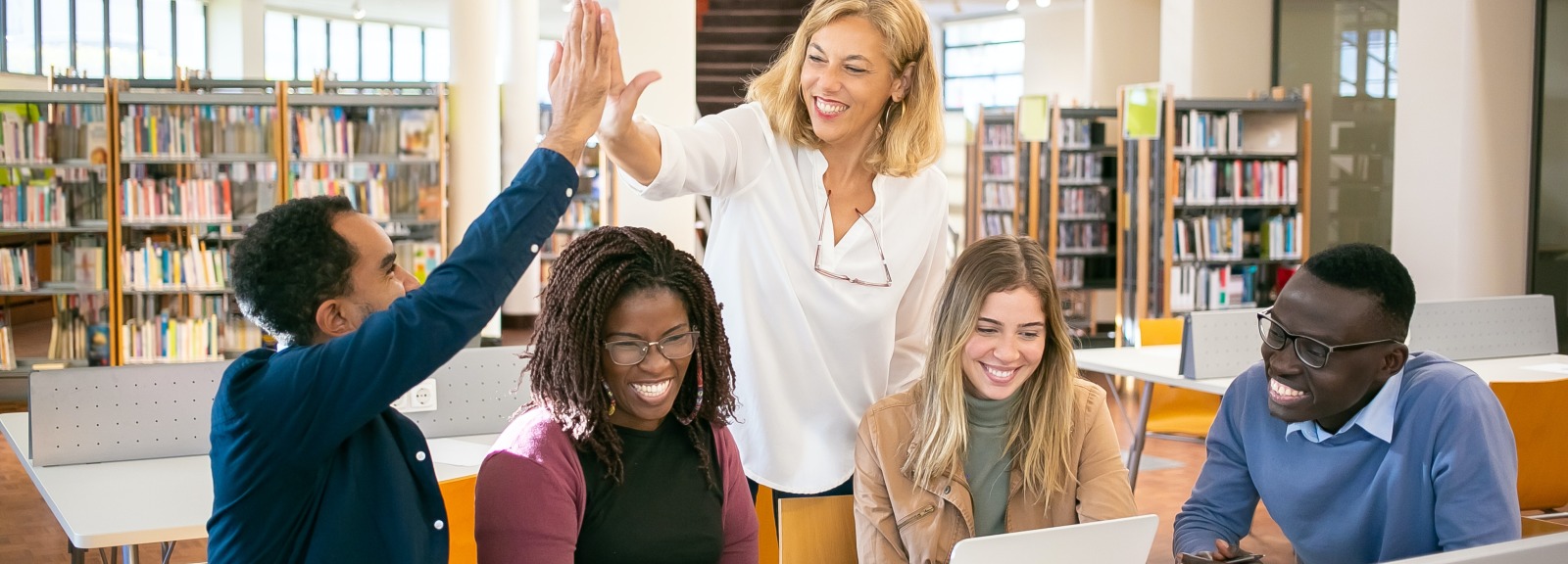
Student Guide
About the Simulation Competition
Did you ever feel like book learning and lectures weren't quite enough? Do you sometimes learn better through experience rather than in the classroom? If yes, then this is the opportunity for you. NASPAA's Simulation Competition is an annual event held in late February and early March at 10 or more NASPAA-member Universities around the world. Graduate students in Masters of Public Administration, Masters of Public Policy and related degree programs work together on small teams to engage with a computerized simulation that uses real-world date to generate a realistic model of a relevant and important public service issue. The goal of the simulation competition is for students to learn and grow as future public service professionals through an educational experience that uses experiential learning and connects the theory of the classroom to the practical skills of the real world.
The competition is typically held from 9 AM - 5 PM on a Saturday in late February or early March.
Student Competitor Guide
Students can either be nominated by their school or they can self-nominate. The student nomination/registration window is typically open from December to mid-February each year. Nominated students are given first priority, but self-nominated students will be accepted too if we their local host school is not over capacity. Students are strongly encouraged to seek a nomination from their school. Students can be nominated by deans, program directors, and Pi Alpha Alpha Advisers. Remember, students must be enrolled in a master’s program in a public service degree (MPA, MPP, etc.) at the time of the competition.
- The registration fee is $40 per in-person student and $20 per virtual student. There are 45-55 spots per site.
- Students will be randomly assigned to teams with other participants from different universities.
- The selection process is highly competitive. Spots are limited. Don't wait until the last minute.
Students who participate in the NASPAA Simulation Competition will be a direct agent in their own education. You will find your voice, think quickly, navigate intergovernmental politics, practice diplomacy, demonstrate critical thinking skills, use inclusive decision-making and make equitable policy deciisions, all in real time with feedback from subjet matter experts and experienced public service practitioners. You will also receive these bonus benefits:
- A formal letter from NASPAA thanking and recognizing you personally for participating in the simulation competition and for being on the cutting edge of public service learning.
- An official certificate from NASPAA recognizing your achivement.
- A unique, immersive experiential learning experience.
- A full-day event in which students play on teams and compete with each other to solve a real public service challenge.
- A chance to meet public service students from other schools and start building your network.
- Being NASPAA’s exclusive simulation competition LinkedIn group.
- A chance to meet and learn from public service professionals who will be judging the competition.
- Taking home a copy of professional-grade materials that you and your team develop during the competition.
- A chance for your team to win a $3,000 prize for first place or smaller prizes for second and third place.
In-person players also get...
- A Friday night reception where you will meet your teammates and other participants.
- Breakfast, lunch, and snacks provided on Saturday
The NASPAA Student Simulation Competition is an engaging experience and a rewarding challenge. You will get out what you put in and it will be worth it. The only condition is that you have to be willing to listen, learn, speak and work hard.
Pre-Competition Preparation:
- Reaching out to your school about getting nominated to participated in the NASPAA Student Simulation Competition. You can do this at anytime, even if we are in between competitions.
- If accepted and registered, you will receive a small amout of reading material and videos to prepare you for the simulation competition:
- Who's on your team. Although you may be nominated with other students from your school, you will be randomly assigned to a team of students from other schools. Half of value of the competition experience is meeting new people and hearing new perspectives.
- How to use the interactive computerized simulation platform.
- What the background and key learning objectives are for the simulation. "What's the problem I'm trying to solve?"
- An overview of how scoring works.
- Information about your player role. Teams consist of 4-6 players and each player has a unique role. Each role has a different set of powers, responsibilities and knowledge. You must review your role ahead of time to understand what your teams from you and how you will be able to make your best contribution.
- Logistical information including where and when to be and any materials you need to bring.
- Students will always need to bring a non-tablet laptop with Google Chrome installed.
Competition Expectations:
- The Friday night before the competition day is a fun, informal reception with all the other students. It's a great opportunity to network.
- Saturday - Competition Day - About an 8-hour day from 9-5
- Breakfast and sign-in
- Introduction and rule overview
- Play the simulation (first half)
- Lunch break
- Play the simulation (second half)
- Prepare a policy memo with your team to summarize what you learned and what your decisions were during the competition
- Break
- Give your policy memo presentation with your team
- Attend a panel with your judges to learn from them, hear their observations and advice and ask them questions about the expectations in the practitioner world.
- Closing ceremony to announce the winner from the competition site.
Breakfast, lunch, coffee and water are provided. Remember to bring your positive attitude and get a good night sleep the night before.
